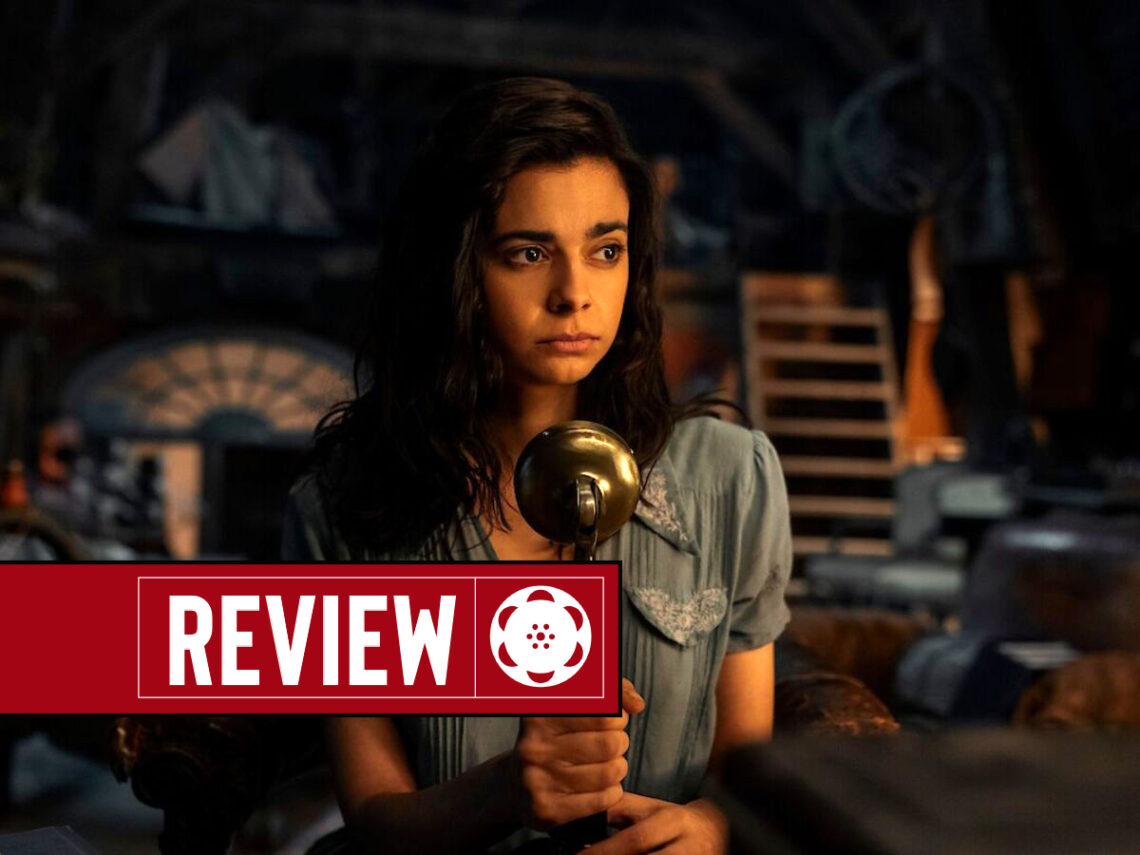If you have read The Book Thief by Markus Zusak, then Anthony Doerr’s lyrical take on similar themes in his Pulitzer Prize-winning novel, All the Light We Cannot See, would feel like a comfort space to you. Both these stories have a palpable light at the heart of it all, beckoning readers and reeling us into a space that feels otherworldly yet hopeful. The vivid and poetic language used to evoke this almost magical warmth is what made these stories so special. And unfortunately, this is what is missing from Netflix’s All the Light We Cannot See adaptation.
Directed by Shawn Levy and developed by Steven Knight, the four-part series looks sleek but is ultimately stunningly shallow, replete with stock characters and repetitive dialogue devoid of any depth. It erases all the lyricism that pulsed through the novel, bringing it alive in the readers’ minds. Levy’s vision brings All the Light We Cannot See into a familiar, formulaic, action-heavy territory, where none of the characters feel fully realised despite being based on such a beloved book.
The performances in the series still make it a fairly enjoyable binge. But even the cast is ultimately let down by a subpar screenplay that is just so blah! If there’s anything that works in this adaptation, it’s because it mirrors what the book achieved. The atrocities of World War II, a central backdrop to the story, are often reduced to mere spectacle, complete with CGI-enhanced action sequences.
The narrative primarily unfolds in the Nazi-occupied French town of St. Malo in 1944, where Marie and Werner’s lives intersect in unexpected ways. Their world is divided between the insufficiently etched-out good allies and the farcically exaggerated evil Germans.
Aria Mia Loberti delivers a sincere portrayal of Marie-Laure, the blind French teenager whose resilience and search for her father form the emotional core of the story. Marie’s father is portrayed by Mark Ruffalo, who’s seldom dull on-screen, but here, even he inconsistently flits between different accents throughout the series. Hugh Laurie plays Marie’s PTSD-stricken great-uncle Etienne LeBlanc, a reclusive World War I veteran. Laurie was recently only at his chaotic best in the comedy sci-fi show Avenue 5, but here, he is limited by the shoddy script.
On the other side of the narrative is Werner Pfennig, played by Louis Hofmann, whom you might remember from the hit Netflix sci-fi series Dark. As a young German boy reluctantly drawn into the horrors of World War II, his character is promising but ultimately hindered by any lack of depth and dimension in the writing.
Instead of becoming a symptomatic symbol of those compelled to sacrifice their lives for a cause they never truly embraced, Werner becomes the token ‘nice’ Nazi with potentially the weakest dialogues in the series. All Quiet on the Western Front actor Felix Kammerer brings a lot more authenticity to his character even though he isn’t there for much of the story.
Lars Eidinger’s portrayal of Reinhold von Rumpel, a frantic Nazi officer searching for an invaluable diamond called the Sea of Flames, is another story arc that misses the mark. The character’s single-minded pursuit of a priceless gem with a mythology of its own is portrayed in a one-note, almost comically unhinged manner reminiscent of a Marvel movie plotline.
Whatever moral complexities and personal struggles we attach to the characters are possible because of everything we already know about the horrors of World War II. We have seen it in countless films and read it in an equally vast number of books. Even when ambiguities and grey areas threaten to peek through, that is more due to the capable actors and less due to the writing or direction.
There are moments of visually arresting scenery. But, in the end, All the Light We Cannot See on Netflix leaves much to be desired. Great actors and source material are not always enough when they are in the hands of filmmakers who may not have been the right fit for it.
All the Light We Cannot See can still make for a mindless binge—one you might almost instantly forget—especially for those who might be unaware of the book or the plethora of other cinematic wonders in this genre.
